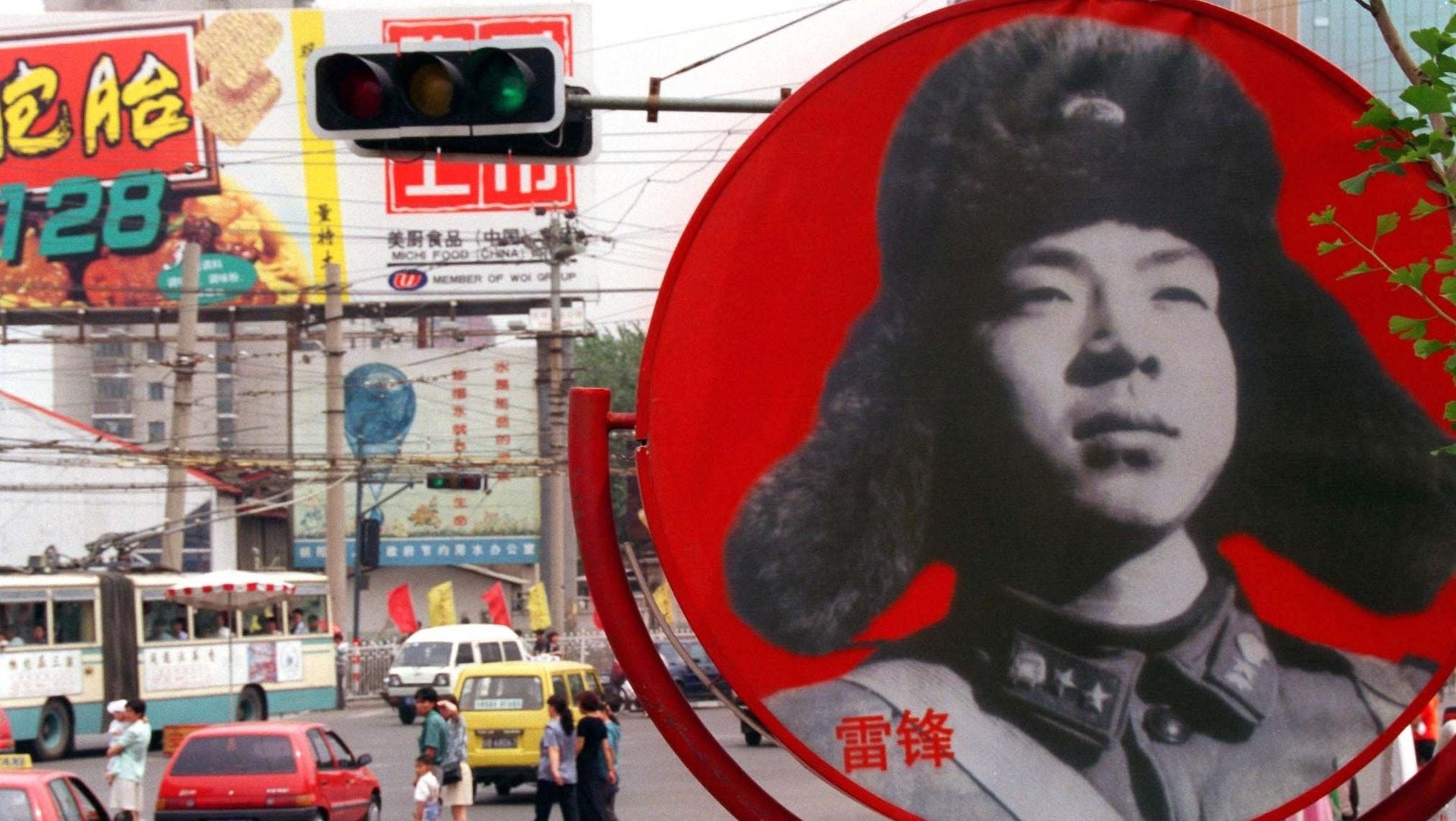KFC turns to the image of a Communist hero to support its massive China expansion
In an unlikely crossover of American capitalism with Communist propaganda, fast-food chain KFC has opened a restaurant in China that memorializes a party hero.


In an unlikely crossover of American capitalism with Communist propaganda, fast-food chain KFC has opened a restaurant in China that memorializes a party hero.
The outlet in the southern province of Hunan is KFC first’s “Lei Feng spirit”-themed outlet. According to Xinhua, it opened March 3 ahead of yesterday’s commemorations of the legendary story of Comrade Lei Feng, a 5-foot-tall orphan-turned-solider immortalized by Mao Zedong for his selfless devotion to the revolutionary cause. Lei—who may not have actually lived—is reported to have died in a freak accident in 1962 at 21, struck by a falling telephone pole. In the decades since, Lei Feng has lived on in the collective Chinese memory, held up as a selfless model citizen in party propaganda—though some scholars contend he may not have existed.
Photos posted online (in Chinese) show tables decorated with illustrated images of Lei Feng. One photo shows a tabletop emblazoned with the slogan, “Promoting Lei Feng’s spirit, striving to be the new figure of the times.” With a red cape, green pants, and a black eye mask, Lei almost looks a little like the American superhero Robin, Batman’s sidekick.
KFC also will “promote the Lei Feng spirit in its over 250 outlets in the province,” according to Xinhua. The campaign comes amid KFC’s broader push to aggressively expand in China, where it is run by Yum China, which spun off from parent Yum Brands in 2016.
Yum China had a bumper year in 2018, with increases in revenue and profits. It added more than 800 new stores—the majority of them KFCs—across China. The company aims to open up to 650 stores in 2019 and has set an eventual target of 20,000 stores in China. At the end of 2018, it had just under 8,500, mostly Pizza Huts and KFCs.
In 1987, KFC became the first major western fast-food chain to enter China. For years it enjoyed its first-mover advantage, expanding quickly into second- and third-tier cities and beating out domestic rivals. As the fast-food market began to mature, with competition from new foreign and domestic entrants, KFC realized it had to more deeply embed itself in Chinese communities. It did so by adding Chinese breakfast favorites (paywall) to its menu, as well as rice-based items for lunch and dinner.
In the 2010s, KFC hit a snag. Same-store sales for Yum’s China division fell. In 2014, when Joey Wat joined KFC China as president, there were questions about KFC’s continued presence in the country. “People asked the question, ‘Do Chinese still like fried chicken?’” Wat told Forbes in a recent interview. “It was in a turnaround situation.”
KFC managed to revamp its operations, turning to healthy options (paywall) and incorporating technology like AI menus, robot servers (paywall), and face-recognition payments. As its chief marketing officer put it, KFC was now a “tech company disguised as a chicken business.”
This is not the first time that KFC has served up a side of patriotism in China. Last year, it introduced an advertising campaign celebrating China’s four decades of “reform and opening up.” In a two-minute TV ad, two Chinese celebrities salute the country’s 40th anniversary of economic reform and shout “Go, China!”
Now KFC may be hoping to insulate itself a little from the US-China trade war. Yet even propaganda icons can find audiences to be fickle. As an internet witticism quoted by the Global Times goes, “the post-1970’s generation learned from Lei Feng, the post-1980’s generation revolted against Lei Feng, and the post-1990’s generation has forgotten about Lei Feng.”